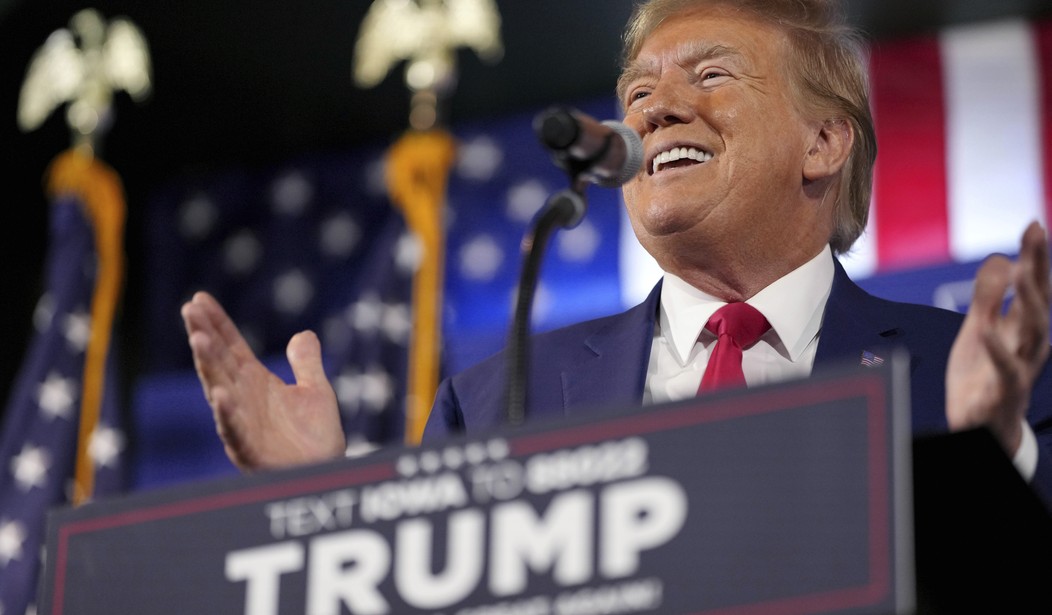We've seen a lot of reaction to the Colorado Supreme Court decision to boot former President Donald Trump off the primary ballot, including from Trump's fellow candidates for the GOP nomination. The Trump team blasted the decision. Even Chris Christie — not a fan of Trump — said he disagreed in principle with taking away the right of the people to choose. Vivek Ramaswamy said he would remove his name from the ballot if Trump was not added back on.
READ MORE:
Trump Team Blasts Political and 'Deeply Undemocratic' Colorado Decision Taking Away Rights of Voters
WATCH: Even Chris Christie Is Casting the Stink Eye on Court Keeping Trump off Ballot
I wrote about how George Washington Law professor Jonathan Turley called it "anti-democratic."
SEE: Jonathan Turley Rips Apart the Colorado Decision Booting Trump Off the Ballot
The Colorado Republicans said they would try to get around all this by going to a caucus process, as my colleague Jerry Wilson noted and my colleague Jennifer Van Laar further explained.
READ MORE:
Ron DeSantis Joins Calls Against Donald Trump’s Removal From Colorado Primary Ballot
Even though the Colorado Supreme Court justices were all appointed by Democratic governors, it was still a 4-3 decision. The decision has been stayed pending an appeal to SCOTUS by Jan. 4, with the primary deadline to have the names in being Jan. 5.
There were three written dissents in the case, but the dissent that is catching everyone's eye is the dissent from Justice Carlos Samour. Some have termed it a "roadmap" for the SCOTUS to overturn the Colorado Supreme Court.
Samour excoriated the majority for a decision that "flies in the face of the due process doctrine.”
One of the main points of contention is who or what body has the power to enforce or carry out Section 3 of the 14th Amendment, which says individuals who engaged in an insurrection may not hold office. Section 5 of the same amendment says Congress has the power to pass laws to enforce section 3.
In Samour’s dissent, he argues Congress passed a law in 1870 allowing for both civil and criminal enforcement of Section 3, though the law was repealed and replaced in 1948. The new law, 18 U.S.C § 2383, says an individual can be banned from holding office if they are charged and convicted under the law. Trump has not been charged under said statute, as pointed out by Samour.
So if Trump hasn't been charged, much less convicted, under that statute that applies, he cannot be removed on this basis, according to Samour. There are other questions about whether or not this provision would even apply to Trump as the president — the trial court was of the opinion it did not apply to him. But you don't have to get to that if they haven't even charged him under 18 U.S.C § 2383, according to Samour.
Colorado lawyer "Jarvis" laid out an analysis of Samour's opinion in an interesting thread you can read that our friends at our sister site Twitchy noted. He, too, thinks that this will be where SCOTUS jumps off from when they make their decision on the matter.
This analysis renders a lot of the other questions irrelevant. Did Trump engage in an insurrection? Does Section 3 apply to the President? Should Trump be off the ballot nationwide or just in states like Colorado that found that he engaged in an insurrection? None of that matters. The only thing that matters is that Congress followed the 14th Amendment and established a procedure for barring someone from office for engaging in an insurrection, and that procedure was not followed here.
Samour also explained it was a recipe for chaos if you went down the road the majority was pursuing.
Samour went on to argue that allowing states to decide individually whether to allow Trump's candidacy "risked chaos in the country." The justice conjured visions of state governments divided on the legitimacy of a victorious presidential candidate.
"This can't possibly be the outcome the framers intended," Samour argued.
We'll find out shortly whether the Supreme Court takes it up, but Samour's dissent makes far more sense than the decision by the majority that steals the right of millions to elect the candidate of their choice.














Join the conversation as a VIP Member